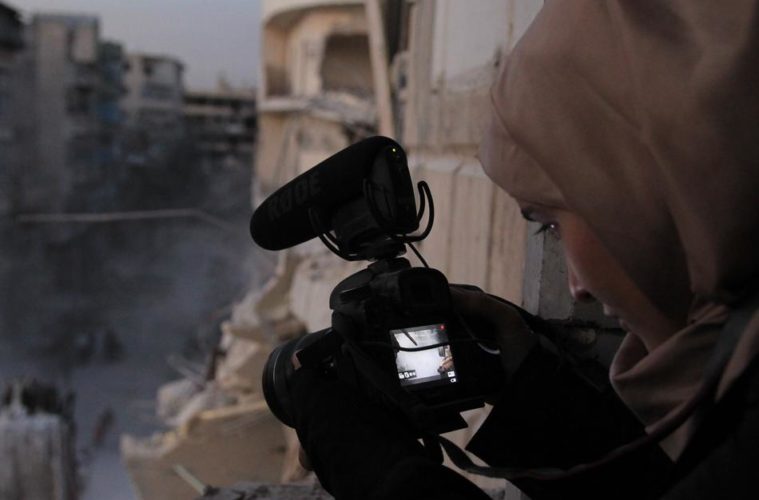It’s unthinkable to imagine the intimacy and immediacy of a self-shot film like For Sama even just years ago, without the access to DSLR and mobile phone cameras which have become so pervasive that the authorities would barely bat an eye at a photographer. Co-director and subject Waad al-Kateab crafts an impactful and harrowing tale inside Aleppo as she navigates both motherhood and life in the war-torn city. Capturing the city without the distant critical eye of a war photographer, she’s a native and this is very much a home movie with geopolitical implications. Beginning as a letter to her daughter Sama, the film documents through various means what life is like inside the city from children discussing the death of friends in air strikes to the front lines of al-Kateab’s husband Hamza’s makeshift hospital.
Co-directed with Edward Watts, For Sama’s structure mirrors the chaos of the moments it captures, simultaneously connecting both her personal and the political past, present and future as she feels an affinity for her home while also lamenting the conditions they are living under. When she gives birth to her second child, away from her Syria she comments that she smells the city. For Sama is no doubt powerful in its immediacy and its unafraid to shy away from the gory details as families–including al-Kateab’s own–become casualties of war, her dreams differed.

The film is not without hope and in one brutal passage a blue baby born prematurely appears to be still-born only to come around after a few moments; even in the most brutal and hopeless of times, miracles are possible. It is not a film for the faint of heart but one that will hopefully move the needle when released in the United States later this year on PBS, showing the human cost of the Syrian civil war. Rooted in a personal perspective, the film provides a brief historic context, but functions more as deeply moving journal from the front lines rather than a definitive text on the war.
For Sama approaches the material non-linearly yet straight-forward, at times with a conversational tone. It’s a rough yet immersive look at a war-torn Aleppo through the eyes of once-optimists who participated in the Arab Spring in attempt to oust dictator Bashar al-Assad. It stands as a remarkable work of unflinching journalism examining the human cost of war without providing any easy answers, even if the story has a bittersweet ending. The latest in a series of work about the cost of the refugee crisis and human migration, For Sama is a harrowing experience and certainly one of the most essential films of the year.
For Sama premiered at SXSW and opens on July 26.

